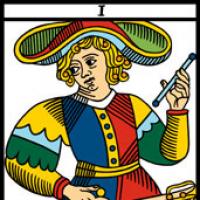Wpisy: 16
Język: English
erinja (Pokaż profil) 11 grudnia 2010, 15:59:25
It's like saying to someone "Your work is most impressive!"
It doesn't actually mean "most", it means "extremely", "very much so", etc.
Context matters however. If I said "I looked at everyone's work, and yours was most impressive", then that would be "most" in the sense that yours was the best of all of them. If I just said, however, "Most impressive!" without that kind of context, then ti's really just a synonym for "extremely impressive", "truly outstanding", etc.
brett73 (Pokaż profil) 12 grudnia 2010, 07:30:38
erinja:It's like saying to someone "Your work is most impressive!"This is what I thought it meant, which is the same as in English, in which "most" can mean the superlative or "highly, very". I agree as you say that it's dependent on context.
It doesn't actually mean "most", it means "extremely", "very much so", etc.
ceigered says that plej "always does mean the superlative, there is no other meaning for plej" which runs counter to English.
As I'm still learning the basics of Esperanto I think I need to encounter more sentences which have just "plej" and not "la plej" to note the difference between the two usages.
ceigered (Pokaż profil) 12 grudnia 2010, 09:21:18

Erinja is by default always right though, since she's fluent, so it's probably better to listen to her over me (who is only in the intermediate range).
So what you're saying is "la plej" must refer to some group you're comparing with, and that group is made clear from context, but just "plej" must mean the most "in the world" or "in existence", for example "ĝi estas plej granda" would mean "it is the biggest (in the world)", right?No, there's no extra meanings you have to worry about, it just means "most" as it would really in English. The "la" makes things specific. That's it really. Naked "plej", more ambiguous, can be used for more things, relies on the listener being able to understand *which* usage the speaker is intending, where as "la plej", just as with any word proceeded by "la", is more specific.
"Li estas plej bona karateisto" would translate directly to "He is a most good karateisto", but just as an English speaker would go "oh, he isn't necessarily the BEST in the world, he's just so good that we're saying "most" to describe it". You could then translate it to "He is a highly talented karateisto", but to some degree it is best to avoid thinking that one of "plej"'s meanings is "highly". This doesn't appear in the dictionary. It's sort of a figurative way of saying it.
*that said, EO doesn't quite get a figurative as other languages.
brett73 (Pokaż profil) 12 grudnia 2010, 16:30:37

I get what you're saying. It all depends on the context.
I should add that as a native English speaker in his late-30s from Australia, I rarely use "most" to mean "highly" as in my generation and background it's too old-fashioned, like 1900-era English, or upper-class British English. I can understand its use if I hear it though. What I fear is that I wouldn't use this in Esperanto where it is more frequently used, so I would sound distinctly strange by not using it. Oh well, awareness of a problem is the first step to solving it

yugary (Pokaż profil) 13 grudnia 2010, 02:58:19
ceigered (Pokaż profil) 13 grudnia 2010, 03:13:13

But good ol' Yugary has summed it up quite nicely
 (Bellissimo!)
(Bellissimo!) 

